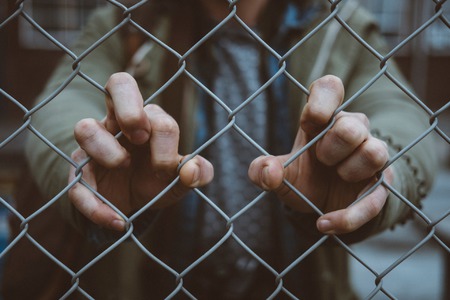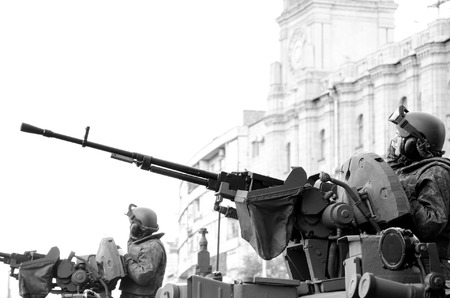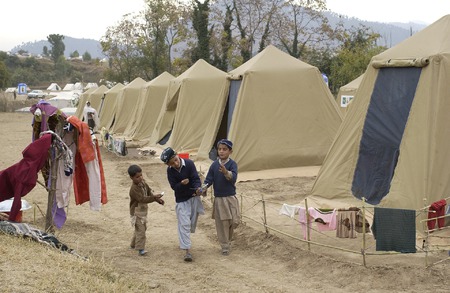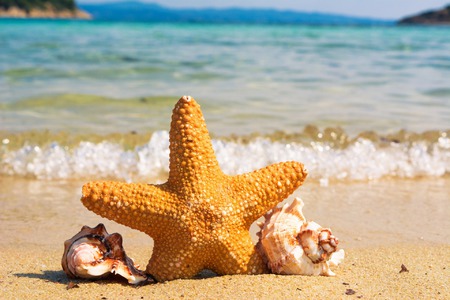Throw the Starfish
Iftu Omar, a 15-year-old boy, wanted to escape Ethiopia after his father was killed and find refuge in Yemen.

He, along with 57 others, first met a smuggler, who took them in a boat that could only fit 20 people. He forced them to sit a certain way to save space. This smuggler left them out to sea for a night, and left them on shore for two days, with no food or water. He gave them the choice to continue and gathered everyone into another boat. They were taken to another shore, divided into groups and placed into trucks. They arrived in the desert, where they were given food and water. The refugees were soon abused, being hit at with black wire, and being asked for their families phone numbers. Those who refused to give in were tortured. Their legs were tied up and run over by motorcycles.
It was a nightmare that you cannot wake up from, and it will never leave me...I fled my country to find freedom - only to find myself in a more horrific situation.
Iftu himself was tortured for 15 days until he gave them his mother's phone number. These phone numbers were needed for ransom calls. Once Iftu's mother paid the ransom, Iftu was released with three other people into the desert, where they eventually found refuge in a mosque.
Iftu's story is only one of many. But like many problems before, one must understand the root.
The History

In 1914, tens of thousands of Belgium civilians took refuge in the UK or the Netherlands.
In the UK, these civilians taking refuge were soon noticed, and UK civilians began a private charitable organization, the War Refugees Committee, for those people they called refugees. In the book Europe Since 1914: Encyclopedia of the Age of War and Reconstruction by John Merriman and Jay Winter (Professors of History at Yale):
It was during World War I that the word refugees first became a familiar term...Following the German invasion of Belgium on 4 August 1914, tens of thousands of Belgian civilians crossed the English Channel to find refuge in the United Kingdom.
By 1918, Belgium refugees were able to be legally registered in the UK.
Meanwhile, in the Netherlands, the Belgium refugees first lived in government-built camps, and later in portable cheap bungalows. Refugee camp life in that setting emphasized health, hygiene, and hard work.
Despite the fact that 'refugee' status only became official during the first world war, the idea of refugee status certainly existed and played out in the real world well before that time. In Western Africa, Muslim groups would go on a pilgrimage, the hajj, which sometimes caused a large and permanent movement and displacement of people as some were unable to complete the pilgrimage or discontinued it. The New Encyclopedia of Africa by John Middleton (American business leader and philanthropist) and Joseph C. Miller (Professor of History) further on states that:
Throughout the known history of the African continent, factors including environmental changes, famine, disease, and competition for resources have led to wars, flight, and resettlement.
From the 9th century CE, trade was a major cause for both involuntary and voluntary population movements in Africa. Merchants would either stop along the journey to set up camp and simply stay there out of ease or lack of resources to move on. The Arab slave trade that continued well into the 20th century caused rapid displacement within and beyond Arabia. This trade targeted East African women to serve as domestic slaves, nannies, and sex-slaves. Over 10 million Africans were permanently displaced via the Swahili coast to India, Saudi Arabia, China, and Turkey; via the Trans-Saharan route to North Africa and the Mediterranean to move further into the slave markets in Morocco, Spain, and Portugal. [1]
From the fourteenth century, the introduction of arms and the capture and sale of slaves by Europeans, and by Africans to Europeans caused further large-scale movements of people, including the loss of millions of the most able-bodied...
If we go further back into the 14th century, one can see that the introduction of weapons and slaves sold by Europeans and Africans caused large-scale movements of people, including the loss of millions of the most able-bodied West African people. This displacement was supposedly stopped in 1807 when Britain abolished slavery. More displacement followed, however. To enforce this abolition, the British Navy patrolled the West African seas to capture slave ships en route to the Americas. However, rather than returning them to their homeland, they were resettled in Freetown, a colony established for 'liberated' slaves. Thus, displacement still existed on the same large scale.
Current Conflict

The term 'refugee' only existed since 1914, but the idea has always been in existence. How does all of this play out in today's world? There has been an incredible amount of political debate surrounding this touchy topic all around the world. Even when the refugee problem seems to be within one nation, people from other nations seem to take part in it, even if they don't have any tie to that nation's government or people through the social contract. This might be because the problem itself is global, and national governments are trying to solve it nationally while the people are oppositely voicing their opinions globally. According to the Voice of America, an international broadcaster:
The United Nations refugee chief says the growing crisis of global displacement is the result of weak international cooperation and the inability to prevent, contain and resolve conflicts.
Last year, only a half-million refugees worldwide returned to their homes. This number is significant on an individual scale. It's similar to the story we all must have heard - a little girl would come to the beach after a storm, and pick up a starfish, and throw it back into its watery home. She would do this until she could no longer pick one up. In the middle of the process, she was interrupted by a man who mocked her, "Little girl, why are you doing this? Look at this beach! You can't save all these starfish. You can't begin to make a difference! " The little girl looked down in defeat at her small feet in the sand. Her shoulders bent down, making her seem deflated and crushed. But in one moment, this little girl's attitude flipped like a switch - she bent down in confidence and picked up a starfish, throwing it back into the watery depths. "Well, I made a difference to that one!"
Yes, a half-million refugees is a wonderfully significant number on an individual scale. But when looking at what UN High Commissioner for Refugees Filippo Grandi said, anyone can plainly see that so much more can be done.
The number of people forcibly displaced worldwide is now approaching 66 million...When I meet refugees, their first question is not about food or shelter, but about peace and security - because it is security, and peace, that will convince them to return home,
A half-million refugees, out of 66 million, is not a number that we should stop at, and not a number we should be content with. Despite its significance, a quantitative significance can also be made. The starfish story actually continues - when the little girl threw in the starfish in front of the man who had torn her down, she had broken down an invisible wall. She stared back at the man's eyes. Inspired, he bent down near a starfish, picked it up, and returned it to it's home. Soon, others joined, and all the starfish were safely thrown in the depths of their home.

Today, only a portion of our population is willing to be the little girl throwing a starfish back into the sea, only a portion is willing to help, no matter how strange and insignificant it may look like. Sadly, sometimes too much of our population is like the condescending man. Fortunately, even condescending people can be inspired, encouraged, and motivated if they see the solution. The man didn't help until he realized that his actions will have a positive real-life impact, not only on the starfish, but the people around him, who gradually helped. Not very many people believe that, as individuals, they can make a difference. They seem to forget that only individuals can make a difference - whether in a group or not. Nobody has every set out to make a difference, only to accomplish no difference. An individual simply trying to make a difference changes the individual, the people surrounding the individual, and the situation this individual set out to change, no matter how small.
Applied Solutions
Since World War II, the United States has been the world's leader in resettling refugees. The reason why resettlement was dubbed an option was because it was the safest for the refugees to maintain their distance from the government they were fleeing. Refugees had up to a 50% chance that the country that would welcome them was the US.
Since then, US politics has changed both nationally and globally, and not just recently. Over the span of multiple presidents, government officials, and government organizations - these policies were deemed to change, especially in a changing world. However, the refugee crisis still seems to be a crisis. Solutions applied today do not seem to be inherent enough for the problem. Currently, the US is withdrawn from the global community for refugee protection, only allowing 45,000 refugees in 2018. This number has been the most restrictive limit the US has set in the 70 years of refugee resettlement. The US has also officially announced that it's pulling out of the UN Global Compact on Migration. Nikki Haley, the US Ambassador to the UN justified it by stating that,
a global approach to the crisis is simply not compatible with U.S. sovereignty.
Despite Haley stating this, Dr. Or Rosenboim, with a Ph.D. in Politics and International Relations stated in 2017 through Foreign Affairs,
...views caricature globalism as a liberal, capitalist, and anti-democratic alternative to nationalism. This understanding, however, is far from the historical meaning of the term...the idea that globalism is fundamentally at odds with national sovereignty is a false and misleading narrative.
Globalism, or a commitment to find an international political order to fit the interconnectedness of the world, as defined by Dr. Rosenboim, doesn't interfere with sovereignty, or the ability of a nation to act independently. It simply realizes and accepts that actions nations take - whether domestic or international, will affect other nations due to the interconnectedness of the world - technologically, culturally, economically, socially, and politically. The refugee crisis is a global problem, and refugees are able to connect with the rest of the world because of its interconnectedness. Realizing that this crisis is within an interconnected world doesn't undermine a nation's ability to act independently, and it certainly doesn't take away a nation's government's social contract and priority towards its own people. Our policies of today need to be able to fit within the new reality of today.
